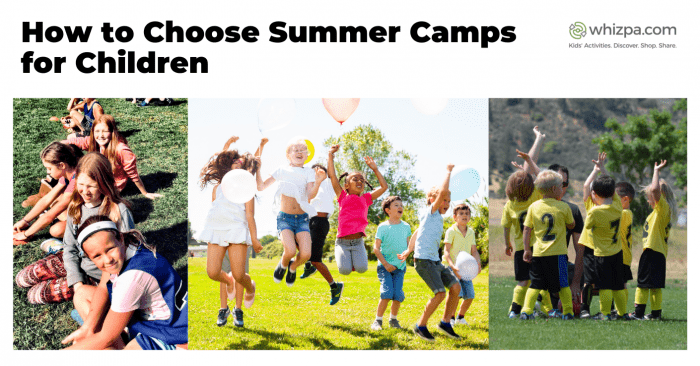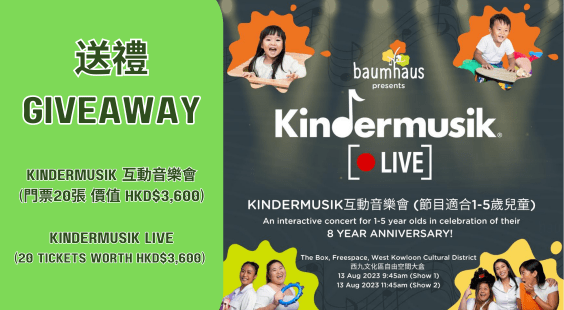
為孩子選擇夏令營的7個貼士
Summer is just around the corner and so are the summer vacations. Unlike last year, when the kids spent a large portion of their time huddled inside their homes due to the pandemic, this year, fortunately, they can look forward to a less restrictive summer. Parents can think about enrolling their kids into adventurous and exciting summer camps and allow them to have a much more fulfilling time. So, time for parents to let go of the worry that kids might stay glued to Netflix and video games throughout the holidays.
One might ask, “Why summer camps? What purpose summer camps serve?” It should be noted that several child development experts suggest that camps are valuable life-experience. They are fun, build character, offer opportunities to make new friends, and give children a sense of belonging to a community of their own. Peter Scales, Ph.D., noted author/educator, and Senior Fellow at The Search Institute says, "The biggest plus is that camps help young people discover and explore their talents, interests, and values. Most schools don't satisfy all these needs. Kids who have had these kinds of (camp) experiences end up being healthier and have fewer problems."
So, now the big question is - where do you begin? How can parents go about selecting the right summer camps for kids? While there is no dearth of short courses out there, it surely can get a bit overwhelming for parents to select the right one. Allow us to help you narrow down your options using the following parameters:
Understand your Child’s Needs and Personality
It is easy for parents to live vicariously through their kids. Sometimes, they tend to force kids to join those courses that they themselves resonate with and think will benefit the child. Some parents may confuse their child’s needs with their own needs. The real question you should be asking is, “what are my children’s interests, what are their strengths and development areas and what do we want them to gain from this experience within the scope of their interests?” It is imperative to understand what skill you and your kid wants to work on. It can be anything from improved self-confidence, tackling stage fright, to becoming a better team-player. You and your child need to enthusiastically agree on the chosen skill to be able to really derive benefit from the camp.
(Source: Pexels)
• Select the Right Sphere of Activity - Once you know what your kid wants to work on, it is time to narrow down the types of programs that can meet those needs. Popular summer camp genres include:
- Athletic
For the sporty kids and those who need to work on their team-building competencies, athletic camps are just right. Not only can they learn their preferred sport (be it football, hockey, skateboarding, etc.), they will also mingle with others and learn how to play as a team.
(Source:Pexels)
- Art
Kids can focus on different aspects of art such as painting using newer mediums, clay sculpting, sketching, visual arts, or even computer-based designing. Helps build patience, perseverance, concentration, and enhanced emotional maturity.
- Theatre and Drama
Such camps offer opportunities to develop abilities such as public speaking, overcoming stage fright, creative script writing, or voice modulation and voiceovers. Improved self-esteem and spatial awareness, better body posture, and empathy are some of the by-products of such classes.
- Photography
Children may learn the art of movie making, understanding composition, capturing motion/ color/ light and design techniques, among others. They may be able to express themselves better, can create their mark on social media, and have improved technical know-how.
- Music
Song writing, drumming, band singing, playing musical instruments, improved self-confidence and creativity, are some of skills that kids can pick up via this genre.
Apart from these, there are several others which may be equally rewarding, such as dance and ballet, creative writing, building and architecture, university preparation camps and courses, hiking and outdoor activity summer camps in Hong Kong.
• Identify the Real Cost
Summer camps usually don’t come cheap. When you look at the prices, you have to look at what all it includes. You might want to ask about things such as lunches, beverages, T-shirts, accessories, transportation, field trips, etc. that might be treated as an extra. Despite the cost, think of these camps as an investment. The fact that kids will learn how to be independent, self-reliant, better communicators and team players, far outweighs the cost of the camps in the long run.
• Choose a Comfortable Location
Location can be tricky, especially if you have more than one child. You don’t want to end up traveling to opposite directions for your primary school kid and your middle-schooler. Think about how the location fits into your daily commute. If it is out of the way, chances are you will not go through the entire program.
• Screen for Covid Precautions
In the current times, we cannot ignore this aspect. Think about which camp has rigorous covid requirements-
- Will testing be required prior to entry and during camp?
- What are the camp’s safety protocols?
- Will masks be worn by the campers all the time?
- Will lunch be eaten outdoors or with adequate social distancing when indoors?
- Will masks need to be worn during physically intensive activities
Other questions that you may look at include details about cleaning and disinfecting protocols at campus as well as whether adequate ventilation systems are in place for indoor courses.
• Lean on Your Social Circle
Sometimes the best courses can be found out by simply digging into your own social circle. Research by posting inquiries on Facebook parenting groups, or asking around friends as to which courses or camps are other kids signing up for. Who knows you may find the perfect one just next door!
(Source: Pexels)
• Inquire About the Instructor - While it is not very easy to find out about the quality of instructors but it’s definitely not impossible. Most of the reputed summer camps have social media presence, so make sure to scroll through their FB or Instagram page and try to find out parents’ reviews or complaints. Also, helpful to understand what the student-to-instructor ratio (ideally shouldn’t be more than 10 campers per teacher). Of course, the lower the ratio, the better.
So, parents, it’s time to make good use of the upcoming summer vacations and let our kids have a blast. They really need to go out, meet new friends, and learn some awesome life-skills to navigate the upcoming chapters of their lives.








